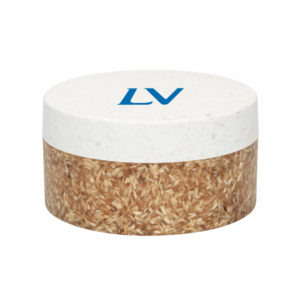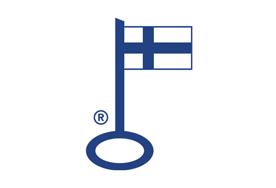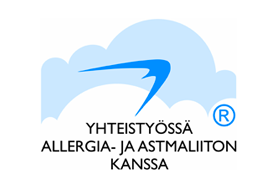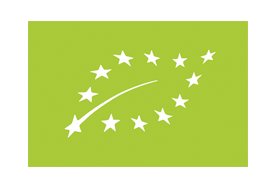Berner’s environmental responsibility is guided by our environmental program. The focus of our environmental responsibility is on increasing the energy efficiency and material efficiency of our operations, minimizing environmental impacts and developing new environmentally friendly products and services.
Our focus areas for 2018–2020 are responsible packaging and raw materials as well as minimizing the environmental impacts of production and transport.
Our operations are certified under the ISO 9001 quality management certificate, the ISO 14001 environmental management certificate and the ISO 22716 certificate regarding the manufacture and storage of cosmetics and hygiene products.
Developing sustainable packaging solutions
Our aim is to develop and implement new ecological packaging solutions for our products. We participate in Finnish innovation efforts aimed at replacing traditional plastic packaging with biodegradable packaging, and we are also increasing the use of recycled plastic.
At the beginning of 2019, we began developing Berner’s plastic roadmap by arranging an internal lecture series called Good Bad Plastic to increase plastic-related awareness within the company. We will continue to develop the plastic roadmap in 2019.
Achievements in 2018
We continued the collaboration we began in the previous year with Sulapac Ltd to develop innovative packaging solutions, with LV All Around Cream Our becoming our first product to be sold in Sulapac’s biodegradable packaging.
Manufactured in Heinävesi and launched near the end of the year, the HETI series of cleaning products and laundry detergents is packaged in bottles that are made from recycled plastic and can be recycled again. The economy package of the LV Color liquid laundry detergent manufactured in Heinävesi uses 75 percent less plastic than a plastic bottle of a corresponding size.
We took a step forward in sustainability in our GreenCare products after the use of recycled plastic began at the Saarijärvi production plant following extensive testing. The shift to use recycled plastic will save approximately 35,000 kg of plastic in 2019.
85 percent of our plastic packaging is recyclable
The plastic packaging materials of all of our products manufactured in Heinävesi are suitable for plastic recycling (XZ, LV, Herbina, HETI, Rajamäen vinegar, Lasol, Korrek). 85 percent of our plastic packaging is recyclable. The remaining 15 percent that is not recyclable is packaging that contains multiple layers of different types of plastic, which prevents their recycling. For these packages, a technical solution capable of preserving the quality of the product is not yet available. They can, however, be recovered for energy after waste sorting. We are in the process of clarifying the recycling indications on our packaging.
The paperboard and cardboard used in the packaging of the products we manufacture ourselves is recyclable, as are our glass and metal packaging materials. We manage the producer responsibility associated with the recycling of our packaging via an agreement with Finnish Packaging Recycling RINKI Ltd.
Targets for 2025
We will continue the development of packaging innovation in the coming years as technology develops. Our goal is that, by 2025, all of our packaging is recyclable, recycled or reusable. Our target for the use of recycled materials is to have 25 percent of our products packaged in recycled material by 2025.
We also aim to have 5 percent of our products packaged in biobased and microplastic-free material by 2025. We want to develop packaging solutions whose life-cycle environmental impacts are minimized.
LV All Around Cream

Responsibility and eco-friendliness are values that are shared between Berner Ltd’s LV series of cleaning and skincare products and Sulapac Ltd, a company known for its packaging innovations. The companies are engaged in a cooperation that has now resulted in the first LV product sold in packaging produced by Sulapac Ltd. The first product to be sold in a fully biodegradable package is LV All Around Cream for dry skin and lips.
LV products contain no unnecessary ingredients, which is why they have a gentler impact on the user’s skin as well as the environment. Seeking solutions that are in line with the principles of sustainable development is part of the philosophy of the LV product family, which is why the packaging collaboration with Sulapac Ltd is an excellent fit for the brand.
“We want to continuously pursue more sustainable solutions in our product development as well as our choice of packaging materials,” says Sanni Väinölä, Brand Manager for LV products.
Responsibility is also the foundation of operations for Sulapac Ltd, which is not only a Finnish enterprise, but also the creator of award-winning packaging innovation: the products are manufactured from wood and biodegradable binding agents. We asked Sulapac CEO and Co-founder Suvi Haimi to explain why packaging material makes such a big difference.
“Wood is the future, but its use is not yet at the level where it should be. The wood used in our packaging originates from industrial side streams and sustainably managed forests. Our collaboration with Berner Ltd’s LV brand shows that biodegradable and microplastic-free are very well suited for use in skincare products, for example,” Suvi Haimi says.
Responsible raw materials
We develop products for cosmetics, agriculture and gardening that contain local bio-based raw materials as well as raw materials that originate from the by-products of the bioindustries and the food industry.
Promoting the circular economy
Launched in 2017, Berner’s first circular economy product, GreenCare Ympäristön Ystävä garden fertilizer, has been well received by environmentally conscious consumers. The product family grew in 2018 to include more packaging sizes and its retail network was expanded.
Designed in cooperation with the Baltic Sea Action Group (BSAG) and Soilfood, GreenCare Ympäristön Ystävä products conserve natural resources and their complete supply chain is as environmentally friendly as possible, from the sourcing of the raw materials all the way through to the packaging of the finished product. By-products of grain processing, sugar production and vegetable oil production, among other things, are used in GreenCare Ympäristön Ystävä products. Last year, we again donated a proportion of the price of every Ympäristön Ystävä product we sold to the Baltic Sea Action Group.
We are committed to developing ecological product innovations through circular economy solutions and we are investigating new opportunities for recycling nutrients to support sustainable development in both home gardening and professional agriculture.
Microplastics eliminated from all of Berner’s own products
Over the past few years, we have engaged in extensive product development to eliminate microplastics from our cosmetics products due to their negative impact on the environment. The last of our products to contain microplastics, the LV Hoitava roll-on antiperspirant, was reformulated in 2018. All of the cosmetics products manufactured by Berner in 2019 are completely free of microplastics.
The use of microplastics in the other cosmetics and skincare products manufactured by us was already discontinued in 2015 when Cosmetics Europe issued a recommendation to the cosmetics industry to discontinue the use of microplastics in cosmetics products by 2020.
We import a number of well-known cosmetics brands, such as Clarins, Sensai, IsaDora, Nuxe, Bronx Colors and Mavala. The rinse-off products of these brands are free of microplastics. IsaDora’s glitter nail polish currently contains microplastics in the form of glitter, but other IsaDora products do not. Rinse-off added in June.
We source palm oil from RSPO members
Palm oil and palm kernel oil are two types of oil derived from oil palms. The cosmetics industry uses palm kernel oil, which is a by-product of food production.
All of the palm oil we use to manufacture our own brands of cosmetics and skincare products is sourced from members of the Roundtable on Sustainable Palm Oil (RSPO). RSPO develops principles for sustainable palm oil production. The members of RSPO are committed to increasing the ecological, social and economic responsibility of oil palm production. Supporting the RSPO’s objectives is currently the best way to contribute to responsible palm oil production.
We conducted an in-depth assessment in 2018 to determine which of the ingredients used in our production activities contain palm oil derivatives. We found that approximately 15 percent of the ingredients we use contain palm oil derivatives. Certified RSPO quality palm oil (mass balance, segregated, identity preserved) represents 55 percent of the total amount by weight and 65 percent of the total quantity of products.
Our target is to increase the proportion of RSPO Mass Balance palm oil derivatives to at least 85 percent in 2019. We further aim to reach 100 percent certified RSPO quality by 2022 at the latest. This new target will require us to focus on recipe development.
The use of palm oil involves environmental concerns related to its impact on rain forests. Recognising this, the industries that use palm oil, including the cosmetics industry, are constantly looking for new and more sustainable solutions for palm oil production.
Palm production offers a superior oil yield compared to the alternatives. Fully replacing palm oil with other vegetable oils, such as olive, coconut or rapeseed oil, would require a vastly greater area of land for cultivation. This would not necessarily be a better solution for the environment. For this reason, many manufacturers of raw materials for cosmetics are RSPO members to systematically support the sustainable and responsible production of palm oil.
Alternatives to palm oil
We also use other natural oils in our products, including olive, avocado, almond and rapeseed oil. In addition, we make use of Finnish ingredients such as sea buckthorn oil, blueberry seed oil and other berry seed oils. We use Finnish xylitol in our Oxygenol toothpaste products.
Sustainably sourced shea butter
Shea butter is a fat extracted from the nut of the shea tree. Rich in vitamin E, it soothes and revitalises skin. We use shea butter in our Herbina products, among others.
The shea butter we use is sustainably sourced through our Swedish supplier, one of the founding members of the Global Shea Alliance.
Minimizing the environmental impacts of production and transport
We began using green electricity at all of Berner’s Finnish operating locations last year. We also prepared a preliminary plan for a solar power investment at our production plants in Heinävesi and our logistics center in Viinikkala. We will assess the feasibility of the investment in 2019.
We increased direct deliveries from Heinävesi to our customers’ central warehouses and terminals across Finland, which enabled us to reduce the number of kilometers driven. We also began using trucks in which products can be loaded on two levels in our product transport between Heinävesi and Viinikkala.
In 2018, we joined the S Group’s Big Deal climate campaign aimed at reducing emissions. Our commitments under the campaign are related to the use of renewable energy, improving energy efficiency and developing lower-emission products.
Sustainable and environmentally friendly choices for consumers
The Nordic Ecolabel, also known as the Swan label, is objective indication of the eco-friendliness, safety and high quality of a product or service. In total, 70 of our products carry the Nordic Ecolabel.
A total of 405 of our products now have the Key Flag symbol, which indicates that the product is manufactured in Finland and supports Finnish employment.
In total, 111 products are now approved by the Allergy, Skin and Asthma Federation. The Allergy Label is issued to products whose safety and reliability has been proved by independent studies. Products that carry the Allergy Label are free of fragrances and commonly allergenic or irritant agents. In home appliances, the Allergy Label reflects features that help reduce indoor air impurities. All products that carry the Allergy Label satisfy detailed category-specific criteria.
Of the products we manufacture in Heinävesi, three are certified organic.
 Key flag products in total 405
Key flag products in total 405 Nordic Ecolabel products in total 70
Nordic Ecolabel products in total 70 Products approved by the Allergy and Asthma Federation in total 111
Products approved by the Allergy and Asthma Federation in total 111
Own organic products 3